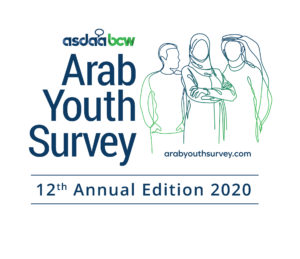Young Arabs Say Getting Quality Mental Healthcare Is Difficult
With World Mental Health Day being observed on October 10, findings from the 12th Annual ASDA’A BCW Arab Youth Survey highlight the concerns of young Arabs on the lack of access to quality mental healthcare in the region, and the need for governments to invest in education and awareness campaigns and make quality mental health care more affordable.
According to this year’s findings, nearly two-in-five (38 per cent) of young Arabs say they know someone mental health issues, compared to 31 per cent of Arab youth surveyed in 2019.
A majority (56 per cent) of Arab youth also say it is difficult to get quality medical care for mental health issues in their country. Young Palestinians (85 per cent), Yemenis (80 per cent), and Syrians (77 per cent) are most likely to say that quality mental health care is difficult to access. Further, nearly half (48 per cent) of Arab youth say seeking medical care for mental health issues is viewed negatively by most people in their country. With the social stigma associated with seeking mental health care being highest in Morocco (76 per cent), Lebanon (72 per cent) and Libya (70 per cent).
The 2020 ASDA’A BCW Arab Youth Survey includes 4,000 interviews with young Arab nationals aged 18 to 24 from 17 Arab states in MENA with a 50:50 male female split, and was completed in two parts: The first Main Survey was conducted between January 19 and March 3, 2020, before the COVID-19 pandemic fully impacted the region, and the second, COVID-19 Pulse Survey, between August 18 and 26, 2020. The questions on mental health were asked as part of the main survey.
Sunil John, President – Middle East of BCW and Founder of ASDA’A BCW, said: “Last year, for the first time our survey shed light on the topic of mental health, an issue that had not been widely discussed in the region. With the World Economic Forum highlighting that the economic cost associated with mental illness is the largest of any health issue and set to reach US$ 6 trillion per year by 2030 globally, timely access to quality mental healthcare is of critical importance. Yet, as our survey shows this year, the region does not appear to have made much progress in addressing this issue.”
With 65 percent of the Arab population under the age of 30, the survey presents evidence-based insights into the attitudes of Arab youth, providing public and private sector organisations with data and analysis to inform their decision-making and policy creation. Download for free, the full findings and expert insight and commentary on this year’s ASDA’A BCWArab Youth Survey at arabyouthsurvey.com








 Email: info@cyber-gear.com
Email: info@cyber-gear.com